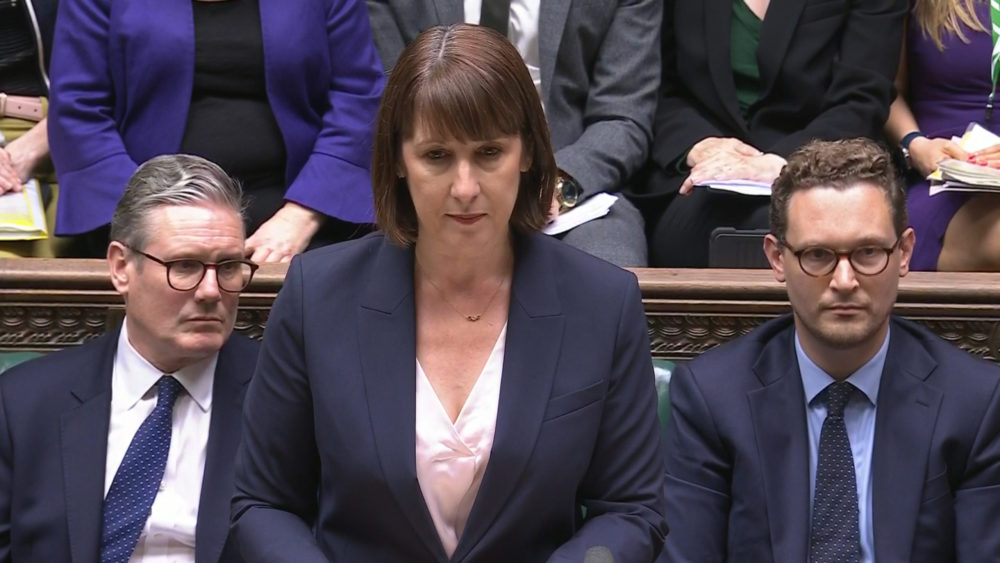
Jonathan Edwards
New governments that have inflicted a heavy defeat on their opponents have an opportunity that seldom appears in politics.
The Tories are quite frankly in a state of complete disarray after a cataclysmic general election following a long stint in power.
They have embarked on a leadership election which will run until the late Autumn, meaning the party’s focus will very much be internal.
It’s an open goal for Labour and they will inevitably use the opportunity to frame the political debate for years to come.
The situation seems remarkably similar to the position in 2010. In the immediate aftermath of that election, the new Conservative Prime Minister, David Cameron, and his Chancellor, George Osborne, ruthlessly framed the economic debate around the need to cut back on public expenditure in order to fix the public finances.
‘No money’
They were aided by a tongue-in-cheek note left by the previous Chief Secretary to the Treasury, Liam Byrne, to his successor, the Liberal Democrat David Laws, stating “Dear Chief Secretary, I’m afraid there is no money. Kind regards – and good luck! Liam.”
That note was still being used in economic debates four parliaments later to justify Tory austerity and undermine Labour’s economic credentials.
Osborneomics, as it became known, also adopted a tactic by Margaret Thatcher of equating the economy of a state to a household budget. When families are under financial pressure, they cut back spending, and so must the government, according to Thatcher and Osborne.
Remarkably, the new Labour Chancellor Rachel Reeves adopted very similar language in her first big economic statement at the end of July.
It is of course complete economic illiteracy to compare household economics to that of a state. A state should balance expenditure, borrowing and revenues in order to create the optimal conditions for economic growth.
Investment
The problem with Osborneomics and his austerity strategy was that in overtly reducing expenditure and borrowing he undermined the revenues being collected by the Treasury in taxes as economic output flatlined. As revenues didn’t grow as expected, the fiscal room for investment reduced.
The economic right don’t like to hear it, but public investment is a key element driving economic growth.
As a political strategy, however, it worked in that it implanted in the minds of the electorate Labour economic misrule, which haunted the party at three subsequent general elections and influenced the ultra-cautious programme put before the electorate by Keir Starmer this year.
I spent 14 years with Reeves in the House of Commons and I know she surely can’t have believed her own words when she embraced Thatcherite household economics.
I always listened intently to her economic contributions due to their substance. I fully get the politics of the strategy in that she wants to ingrain in the mindset of the electorate Tory economic chaos.
However, it also roots in the minds of the electorate that the only way to run the finances of the state is to operate within a self-imposed financial bind. It suits the Treasury bean counters, but it’s pure madness on an economic basis and the inevitable consequence is a smaller state.
Landslide
The question I ask myself is, what was the point of winning a massive landslide if not to reconfigure the political and economic narrative?
As the playwright Eugene O’Neill writes in A Moon for the Misbegotten, “There is no present or future – only the past, happening over and over again – now.”
Here lies the tragedy of British government economic policy since the Thatcher revolution.
Many of us who voted Labour for the first time last month are looking for a change of direction.
Unless the forthcoming Budget and Spending Review in the Autumn indicate a new approach, those new Labour voters will go looking elsewhere, especially come the 2026 Senedd elections.
In that regard the fate of our new First Minister Eluned Morgan is very much in the hands of 11 Downing Street.
Jonathan Edwards is the former MP for Carmarthen East & Dinefwr.
Support our Nation today
For the price of a cup of coffee a month you can help us create an
independent, not-for-profit, national news service for the people of Wales, by
the people of Wales.





